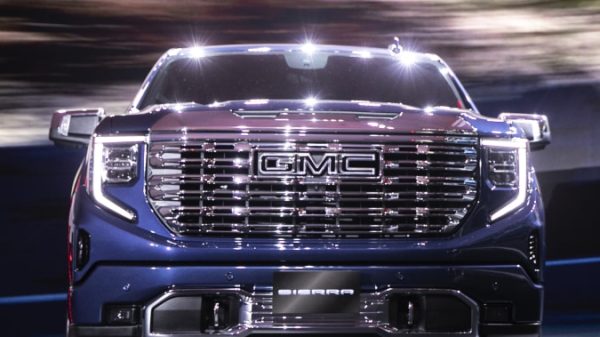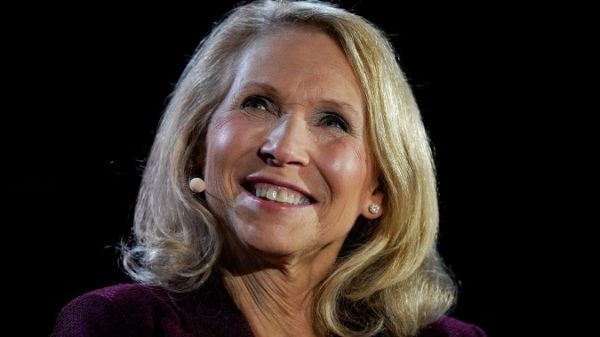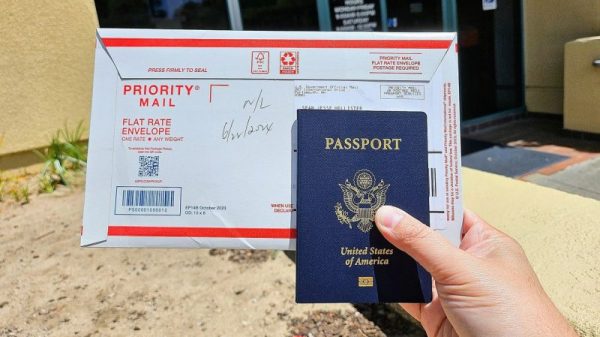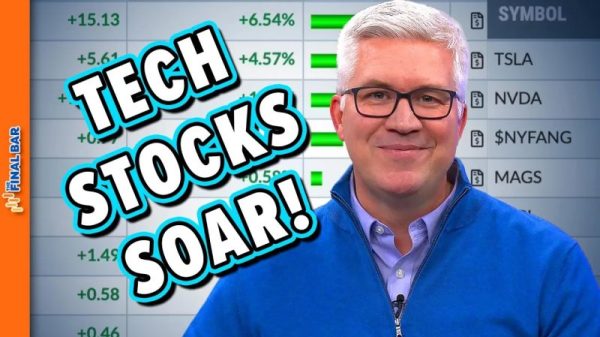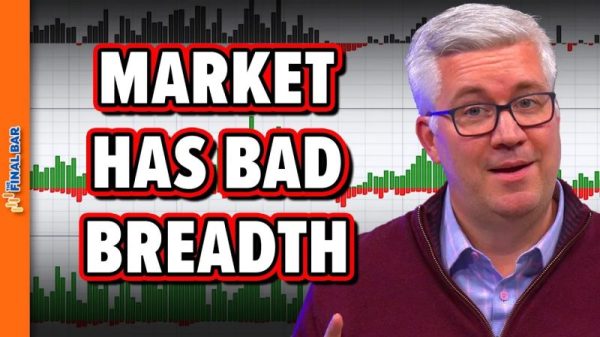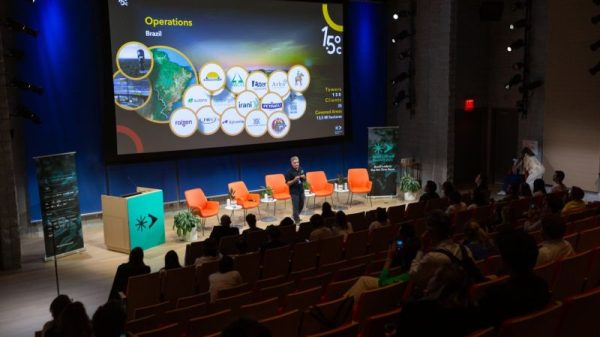During a recent meeting between Donald Trump and a group of pastors at the First Church of the Open Bible in Des Moines, one attendee raised concern about the former president’s criticism of Florida Gov. Ron DeSantis’s six-week ban on abortion, asking why he appeared to be backpedaling on the issue.
Trump responded with a defense of his record, telling the group that he had moved “the pro-life issue in a better place of negotiation because of the removal of Roe v. Wade,” recalled pastor Michael Demastus of Des Moines, who helped organize the June 1 meeting.
That answer fell short for Demastus, who has not picked a 2024 candidate. “For a person like me, this is a core issue,” Demastus said. “I don’t see this as an issue of a utilitarian or pragmatic political ploy so that we get a better bargaining chip. I’m looking at the fact that we’re actually trying to rescue lives.”
Robert Jeffress, senior pastor of the First Baptist Church in Dallas, who has backed Trump since 2015, offered a different take after speaking to the former president about his refusal this year to take a position on a federal abortion ban. Jeffress said evangelical Christians are still “overwhelmingly” supporting Trump. He said the former president was speaking about the issue from the perspective of “a realist” who understands that “if there is going to be a national abortion policy like many conservatives want, it’s going to be the result of compromise.”
Trump’s courtship of evangelical leaders, as reflected in the two conversations, illustrates the outsize influence Christian conservatives hold in determining the next Republican nominee. It also points to the difficult balance that Trump and other GOP presidential contenders face when it comes to abortion one year after the Supreme Court overturned Roe. Some are seeking to appeal to a base determined to press further in limiting abortion rights, while heading off the kind of general election backlash Republicans faced on the issue in last year’s midterms. Their positioning will be tested anew starting Friday in appearances at the Faith & Freedom Coalition’s Road to Majority conference in Washington.
Even as some of the candidates have used their power in government to sharply limit abortion rights, they have at times appeared less than comfortable talking about the issue. Trump and former U.N. ambassador Nikki Haley have been evasive about how late in a pregnancy they would allow abortion. Sen. Tim Scott (R-S.C.) struggled to answer questions about his position as he launched his campaign in New Hampshire. And DeSantis initially appeared reluctant to discuss the six-week ban that he quietly signed in Florida, though he now mentions it more often and recently criticized Trump for not saying whether he would have signed the bill.
Former vice president Mike Pence has notably struck a consistently harder-line tone, saying he would sign a six-week ban on abortion as president, welcoming a clear contrast with Trump.
After Roe was overturned, voters repeatedly showed their support for abortion rights by striking down antiabortion amendments even in conservative states such as Kentucky and Kansas. Democrats seized on the issue during the midterms, winning more victories than expected in competitive races as they made abortion rights the central issue, despite the favorable climate for Republicans. More than a quarter of voters said abortion was the most important issue and about three quarters of them voted Democratic, exit poll data show. Trump earlier this year blamed GOP losses on Republicans mishandling abortion in the campaign.
But in the GOP primary, the dynamic is different. Evangelical voters helped Trump clinch the 2016 nomination, and his efforts to nominate and install their preferred judicial nominees — including the three Supreme Court justices who helped overturn the constitutional right to an abortion in Dobbs v. Jackson one year ago — helped tighten his grip over them.
Now, Trump is facing competition from other candidates making overt appeals to Christian conservatives such as Pence, as well as Scott and DeSantis. All of the major 2024 GOP contenders are speaking at the Faith & Freedom conference on Friday or Saturday.
The gathering comes at a time when some antiabortion leaders are urging the candidates to publicly advocate for a national ban on abortion at 15 weeks, rather than sidestepping the question or suggesting individual states should have the last word, as Trump has done. At a town hall at Experience Church in Des Moines on Wednesday night, Marjorie Dannenfelser, the president of Susan B. Anthony Pro-Life America, praised Scott, Pence and former Arkansas Gov. Asa Hutchinson for their position on abortion and warned that any candidate who did not support at least the 15-week ban would not receive support from the organization.
“The pro-life community and the faith-based community are going to rally around the idea that there should be a national minimum standard,” said Sen. Lindsey O. Graham (R-S.C.), a Trump backer who has led the effort to ban abortion after 15 weeks of pregnancy nationwide with exceptions for rape, incest or risks to the life and physical health of the mother. “If you’re running for president, you’ll eventually need to be ready to answer whether or not you would sign my bill.”
A late-May Monmouth University poll found support for Trump was slightly higher among evangelical Christians (60 percent) than among other Republicans and Republican-leaning independents (51 percent). He led among both groups by a wide margin.
Still, some evangelical leaders see an opening for a Trump alternative, given his reluctance to publicly commit to a 15-week abortion ban and his statement earlier this year about midterm losses. His insistence that future abortion bans should be determined by the states post-Roe sparked a backlash from Susan B. Anthony Pro-Life America, which initially called it a “morally indefensible position for a self-proclaimed pro-life presidential candidate.”
Trump, who has presented himself to voters as “the most pro-life President in history,” smoothed over the fracas in a meeting with the group’s president and Graham, but still did not clarify his view about Graham’s proposed 15-week national ban.
“I don’t think he has the grip on the evangelical bloc,” said Bob Vander Plaats, an Iowa Christian leader, speaking of Trump.
Pence, who is polling in single digits, is arguing that Trump is no longer driving the agenda for evangelicals as he once did as president.
The former vice president still points to the administration’s accomplishments, including the confirmation of the three Supreme Court nominees. But in his announcement speech, Pence accused Trump of “retreating from the cause of the unborn.”
“President Trump met conservatives and evangelicals in 2016 and said I will fight your battles, but today he’s asking them to fight his battles,” said Marc Short, an adviser to Pence as he alluded to Trump focus on his own grievances and legal entanglements. “It is unclear what his message is as to what he will offer them in a second administration.”
Short argued that evangelical voters know that Pence has been their champion far longer, since his days in Congress when he took the lead on denying taxpayer funding to Planned Parenthood, and over many years serving as a “champion for the cause of life.”
Scott has said that he would support the 15-week abortion ban and vowed to sign the “most conservative pro-life legislation” if elected to the White House. In a televised interview earlier this year, he was more evasive on the question.
Haley, the only woman in the GOP field, has presented herself as a unique messenger on abortion capable of forging compromise. But she has offered few specifics about the extent to which she would seek to limit abortion, stating that she wants to “save as many babies and help as many moms as possible.” She has also said that she believes there is a role for the federal government on abortion — but has not specified what that is.
With Trump continuing to dominate in the polls, some Christian conservatives see little indication that an alternative message or messenger is breaking through. But they also cautioned that previous winners of the first-in-the-nation Iowa GOP caucuses broke late.
“I think Trump’s got the inside track right now, but I don’t think that’s a guarantee either,” said Steve Scheffler, president of the Iowa Faith and Freedom Coalition, who has not endorsed a candidate. “He delivered on a lot of things that he said he would … The others have to make the case that if they are the nominee they will deliver on what they are talking about too.
Democrats said they believe that the GOP’s internal competition will cost them support from independents and moderates in the general election just as it did in 2022.
A Gallup poll released last week showed that a record high of 69 percent of Americans believe abortions should be legal in the first three months of pregnancy. About 37 percent of respondents said it should be legal in the second three months of pregnancy and 22 percent said it should be allowed in the last three months of pregnancy. Those numbers were the highest Gallup has found in trends since 1996.
Democratic campaign officials made it clear this week that they still view abortion as a key motivating factor for their voters in the 2024 election.
Vice President Harris is planning an address in Charlotte on Saturday to mark the anniversary of the Dobbs decision. A collection of women’s groups championing abortion rights, including NARAL Pro-Choice America, MomsRising and Ultraviolet, are organizing a Women’s March and rally in Washington on the same day to galvanize voters around what Rachel O’Leary Carmona, Executive Director of the Women’s March, calls the fight to win their “bodily autonomy and rights.”
Democratic senators this week, in a largely symbolic act, attempted to pass legislation by voice vote seeking to address the aftermath of Dobbs.
Scott Clement contributed to this report.
During a recent meeting between Donald Trump and a group of pastors at the First Church of the Open Bible in Des Moines, one attendee raised concern about the former president’s criticism of Florida Gov. Ron DeSantis’s six-week ban on abortion, asking why he appeared to be backpedaling on the issue.
Trump responded with a defense of his record, telling the group that he had moved “the pro-life issue in a better place of negotiation because of the removal of Roe v. Wade,” recalled pastor Michael Demastus of Des Moines, who helped organize the June 1 meeting.
That answer fell short for Demastus, who has not picked a 2024 candidate. “For a person like me, this is a core issue,” Demastus said. “I don’t see this as an issue of a utilitarian or pragmatic political ploy so that we get a better bargaining chip. I’m looking at the fact that we’re actually trying to rescue lives.”
Robert Jeffress, senior pastor of the First Baptist Church in Dallas, who has backed Trump since 2015, offered a different take after speaking to the former president about his refusal this year to take a position on a federal abortion ban. Jeffress said evangelical Christians are still “overwhelmingly” supporting Trump. He said the former president was speaking about the issue from the perspective of “a realist” who understands that “if there is going to be a national abortion policy like many conservatives want, it’s going to be the result of compromise.”
Trump’s courtship of evangelical leaders, as reflected in the two conversations, illustrates the outsize influence Christian conservatives hold in determining the next Republican nominee. It also points to the difficult balance that Trump and other GOP presidential contenders face when it comes to abortion one year after the Supreme Court overturned Roe. Some are seeking to appeal to a base determined to press further in limiting abortion rights, while heading off the kind of general election backlash Republicans faced on the issue in last year’s midterms. Their positioning will be tested anew starting Friday in appearances at the Faith & Freedom Coalition’s Road to Majority conference in Washington.
Even as some of the candidates have used their power in government to sharply limit abortion rights, they have at times appeared less than comfortable talking about the issue. Trump and former U.N. ambassador Nikki Haley have been evasive about how late in a pregnancy they would allow abortion. Sen. Tim Scott (R-S.C.) struggled to answer questions about his position as he launched his campaign in New Hampshire. And DeSantis initially appeared reluctant to discuss the six-week ban that he quietly signed in Florida, though he now mentions it more often and recently criticized Trump for not saying whether he would have signed the bill.
Former vice president Mike Pence has notably struck a consistently harder-line tone, saying he would sign a six-week ban on abortion as president, welcoming a clear contrast with Trump.
After Roe was overturned, voters repeatedly showed their support for abortion rights by striking down antiabortion amendments even in conservative states such as Kentucky and Kansas. Democrats seized on the issue during the midterms, winning more victories than expected in competitive races as they made abortion rights the central issue, despite the favorable climate for Republicans. More than a quarter of voters said abortion was the most important issue and about three quarters of them voted Democratic, exit poll data show. Trump earlier this year blamed GOP losses on Republicans mishandling abortion in the campaign.
But in the GOP primary, the dynamic is different. Evangelical voters helped Trump clinch the 2016 nomination, and his efforts to nominate and install their preferred judicial nominees — including the three Supreme Court justices who helped overturn the constitutional right to an abortion in Dobbs v. Jackson one year ago — helped tighten his grip over them.
Now, Trump is facing competition from other candidates making overt appeals to Christian conservatives such as Pence, as well as Scott and DeSantis. All of the major 2024 GOP contenders are speaking at the Faith & Freedom conference on Friday or Saturday.
The gathering comes at a time when some antiabortion leaders are urging the candidates to publicly advocate for a national ban on abortion at 15 weeks, rather than sidestepping the question or suggesting individual states should have the last word, as Trump has done. At a town hall at Experience Church in Des Moines on Wednesday night, Marjorie Dannenfelser, the president of Susan B. Anthony Pro-Life America, praised Scott, Pence and former Arkansas Gov. Asa Hutchinson for their position on abortion and warned that any candidate who did not support at least the 15-week ban would not receive support from the organization.
“The pro-life community and the faith-based community are going to rally around the idea that there should be a national minimum standard,” said Sen. Lindsey O. Graham (R-S.C.), a Trump backer who has led the effort to ban abortion after 15 weeks of pregnancy nationwide with exceptions for rape, incest or risks to the life and physical health of the mother. “If you’re running for president, you’ll eventually need to be ready to answer whether or not you would sign my bill.”
A late-May Monmouth University poll found support for Trump was slightly higher among evangelical Christians (60 percent) than among other Republicans and Republican-leaning independents (51 percent). He led among both groups by a wide margin.
Still, some evangelical leaders see an opening for a Trump alternative, given his reluctance to publicly commit to a 15-week abortion ban and his statement earlier this year about midterm losses. His insistence that future abortion bans should be determined by the states post-Roe sparked a backlash from Susan B. Anthony Pro-Life America, which initially called it a “morally indefensible position for a self-proclaimed pro-life presidential candidate.”
Trump, who has presented himself to voters as “the most pro-life President in history,” smoothed over the fracas in a meeting with the group’s president and Graham, but still did not clarify his view about Graham’s proposed 15-week national ban.
“I don’t think he has the grip on the evangelical bloc,” said Bob Vander Plaats, an Iowa Christian leader, speaking of Trump.
Pence, who is polling in single digits, is arguing that Trump is no longer driving the agenda for evangelicals as he once did as president.
The former vice president still points to the administration’s accomplishments, including the confirmation of the three Supreme Court nominees. But in his announcement speech, Pence accused Trump of “retreating from the cause of the unborn.”
“President Trump met conservatives and evangelicals in 2016 and said I will fight your battles, but today he’s asking them to fight his battles,” said Marc Short, an adviser to Pence as he alluded to Trump focus on his own grievances and legal entanglements. “It is unclear what his message is as to what he will offer them in a second administration.”
Short argued that evangelical voters know that Pence has been their champion far longer, since his days in Congress when he took the lead on denying taxpayer funding to Planned Parenthood, and over many years serving as a “champion for the cause of life.”
Scott has said that he would support the 15-week abortion ban and vowed to sign the “most conservative pro-life legislation” if elected to the White House. In a televised interview earlier this year, he was more evasive on the question.
Haley, the only woman in the GOP field, has presented herself as a unique messenger on abortion capable of forging compromise. But she has offered few specifics about the extent to which she would seek to limit abortion, stating that she wants to “save as many babies and help as many moms as possible.” She has also said that she believes there is a role for the federal government on abortion — but has not specified what that is.
With Trump continuing to dominate in the polls, some Christian conservatives see little indication that an alternative message or messenger is breaking through. But they also cautioned that previous winners of the first-in-the-nation Iowa GOP caucuses broke late.
“I think Trump’s got the inside track right now, but I don’t think that’s a guarantee either,” said Steve Scheffler, president of the Iowa Faith and Freedom Coalition, who has not endorsed a candidate. “He delivered on a lot of things that he said he would … The others have to make the case that if they are the nominee they will deliver on what they are talking about too.
Democrats said they believe that the GOP’s internal competition will cost them support from independents and moderates in the general election just as it did in 2022.
A Gallup poll released last week showed that a record high of 69 percent of Americans believe abortions should be legal in the first three months of pregnancy. About 37 percent of respondents said it should be legal in the second three months of pregnancy and 22 percent said it should be allowed in the last three months of pregnancy. Those numbers were the highest Gallup has found in trends since 1996.
Democratic campaign officials made it clear this week that they still view abortion as a key motivating factor for their voters in the 2024 election.
Vice President Harris is planning an address in Charlotte on Saturday to mark the anniversary of the Dobbs decision. A collection of women’s groups championing abortion rights, including NARAL Pro-Choice America, MomsRising and Ultraviolet, are organizing a Women’s March and rally in Washington on the same day to galvanize voters around what Rachel O’Leary Carmona, Executive Director of the Women’s March, calls the fight to win their “bodily autonomy and rights.”
Democratic senators this week, in a largely symbolic act, attempted to pass legislation by voice vote seeking to address the aftermath of Dobbs.
Scott Clement contributed to this report.


